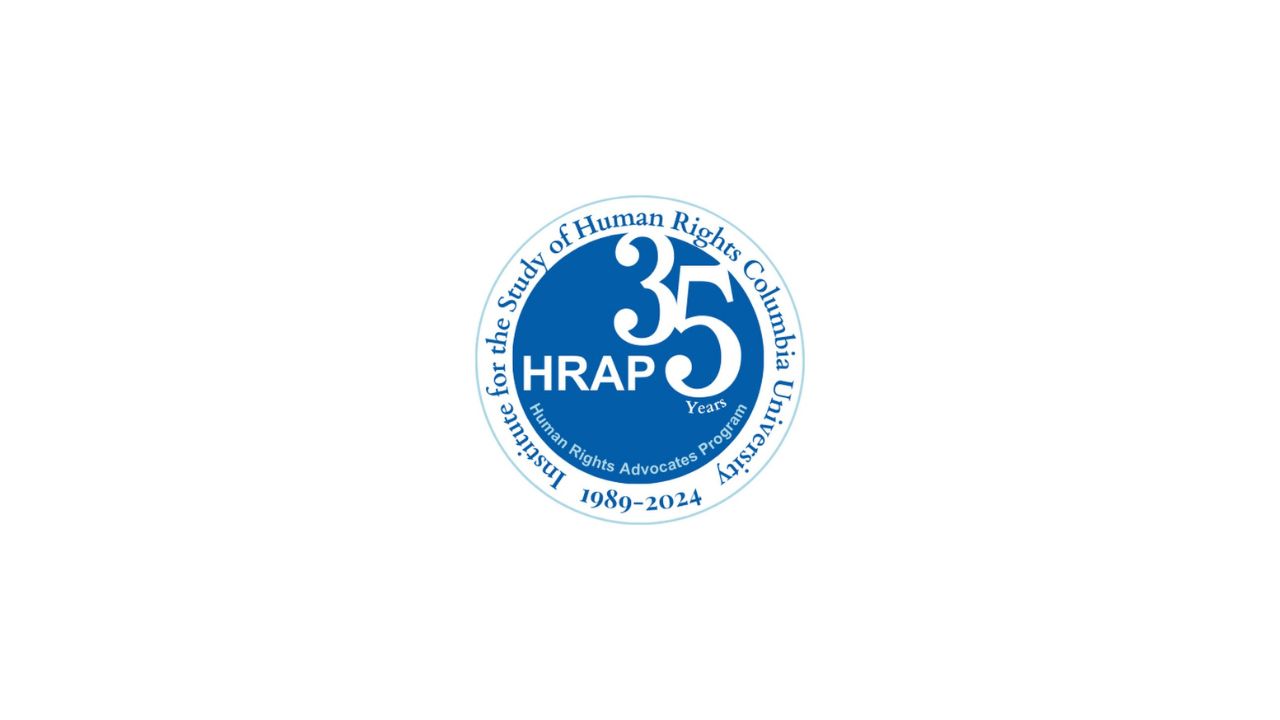The Human Rights Advocates Program (HRAP) is a capacity-building program for grassroots human rights activists who work with non-governmental organizations (NGOs). It provides academic and professional development opportunities to strengthen their work and organizations. The program takes place in New York City and is hosted by Columbia University’s Institute for the Study of Human Rights (ISHR).

Program timeline
- Online component: November–December 2026
- On-campus component: Mid-January–mid-May 2027
Program highlights
- Capacity building: Enhances grassroots human rights leaders with the tools, knowledge, and networks needed to strengthen their organizations.
- Academic training: Advocates audit graduate-level courses at various Columbia University schools, including the Law School and the School of International and Public Affairs.
- Mentorship: Each advocate is assigned a Columbia University professor as a mentor.
- Networking: The program includes workshops with major human rights organizations, meetings with policymakers and funders, and a trip to Washington D.C.
- Public engagement: Advocates are often invited to participate in panel discussions and lectures to raise public awareness of their causes.
Eligibility requirements
The HRAP is for grassroots human rights activists from NGOs who have previous work experience and a commitment to the field. The program is not for full-time students, academics, or government officials. Applicants must be fluent in English and are generally not considered from high-income countries, with exceptions for those representing marginalized communities. Proof of institutional endorsement and a commitment to return to their organization after the program are required. While HRAP strives to secure funding for participants (covering costs, travel, and housing), there is a possibility an advocate may need to cover their own expenses if funding is not obtained.
Application process
The application deadline is Monday, December 1, 2025, at 11:59 pm ET. To apply, register for an account on the ISHR website. All application materials, including attachments and two signed letters of recommendation, must be in English. A copy of a university diploma or transcript is needed; a bachelor’s degree is preferred but not required.
Next steps for applicants
Applicants should apply early to avoid technical issues. The ISHR website’s FAQ page addresses common questions. All applicants will be notified of their status by April 30, 2026.
Hi, I’m Owen. I’m passionate about sharing the latest government aid news, benefits, and policy updates so you can stay informed and make the most of available resources. My goal is to break down complex information into clear, easy-to-understand updates that help you navigate programs and opportunities that matter to you.


